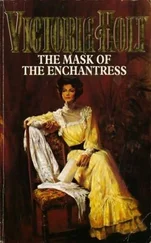Виктория Холт - Royal Sisters - The Story of the Daughters of James II
Здесь есть возможность читать онлайн «Виктория Холт - Royal Sisters - The Story of the Daughters of James II» весь текст электронной книги совершенно бесплатно (целиком полную версию без сокращений). В некоторых случаях можно слушать аудио, скачать через торрент в формате fb2 и присутствует краткое содержание. Жанр: Исторические любовные романы, на английском языке. Описание произведения, (предисловие) а так же отзывы посетителей доступны на портале библиотеки ЛибКат.
- Название:Royal Sisters: The Story of the Daughters of James II
- Автор:
- Жанр:
- Год:неизвестен
- ISBN:нет данных
- Рейтинг книги:3 / 5. Голосов: 1
-
Избранное:Добавить в избранное
- Отзывы:
-
Ваша оценка:
- 60
- 1
- 2
- 3
- 4
- 5
Royal Sisters: The Story of the Daughters of James II: краткое содержание, описание и аннотация
Предлагаем к чтению аннотацию, описание, краткое содержание или предисловие (зависит от того, что написал сам автор книги «Royal Sisters: The Story of the Daughters of James II»). Если вы не нашли необходимую информацию о книге — напишите в комментариях, мы постараемся отыскать её.
Royal Sisters: The Story of the Daughters of James II — читать онлайн бесплатно полную книгу (весь текст) целиком
Ниже представлен текст книги, разбитый по страницам. Система сохранения места последней прочитанной страницы, позволяет с удобством читать онлайн бесплатно книгу «Royal Sisters: The Story of the Daughters of James II», без необходимости каждый раз заново искать на чём Вы остановились. Поставьте закладку, и сможете в любой момент перейти на страницу, на которой закончили чтение.
Интервал:
Закладка:
“Young?” said the Queen. “I fancy I have heard his name before.”
“I have ascertained, Your Majesty, that he is a criminal, in prison for forgery,” Danby told her.
“These are dangerous times,” replied the Queen.
The Council agreed with her; also that no sources of information, wherever they were, should be overlooked.
As a result Young was able to tell them that if they searched the flowerpots in the Bishop’s house they would find the document.
As a result the Bishop was arrested and a search party was sent to the Bishop’s house and his flowerpots investigated.
Fortunately for the men whose names had been forged, for they would have been sent to the scaffold had the document been discovered, since Young’s signatures were very good indeed, the disused parlor was overlooked; and the party came away without discovering the document.
Sarah was with Anne at Berkeley House in Piccadilly, whither they had come from Sion House as soon as Anne had recovered from her latest confinement, when news was brought to her from St. Albans that her youngest child, Charles, was ill.
“You must go at once to him, dear Mrs. Freeman,” said Anne, “and write to me every day that I may know what is happening to you.”
Sarah promised and when, arriving at St. Albans, she found the child with a high fever, she immediately put all her energies to nursing him.
It was pleasant to be home with her family, but not, as she told her husband, for such a reason.
“This ridiculous state of affairs must be over soon,” she said. “Time is being wasted.”
“Anything can happen in the next few weeks,” replied Marlborough. “There are going to be mighty battles either at sea or on land and they may well decide great issues.”
“And Marlborough skulking at home … in disgrace!”
“Which may be as well,” he said grimly. “It is difficult at this stage to know which side one should be on.”
Sarah was ready to launch into discussion of great plans, but the sickness of the child worried her and as the days passed he grew worse.
She was in the sickroom one day when she heard the sounds of horses galloping and looking from her window she saw a company of guards coming toward the house.
She called to her husband, but he was already on his way down. Rushing after him she was in time to hear what the leader was saying.
Marlborough was arrested on a charge of high treason, and orders were to conduct him without delay to the Tower of London.
Sarah was in despair. She thought of the letters Marlborough had written to James and trembled. Had one of these fallen into the Queen’s hands? If so, he was doomed. But Sarah was not one to believe the worst until it had happened.
Marlborough must be freed from the Tower. He must be proved innocent.
How?
She must go to him. She could be with him in his lodging, make sure that he was well cared for, plan his escape if necessary.
She was preparing to leave when one of the nurses came to her and begged her to come at once to the child’s sickroom.
Little Charles had taken a turn for the worse.
Sarah, numb with misery, sat reading a letter from the Princess Anne.
“I am very sensibly touched with the misfortune that my dear Mrs. Freeman has in losing her son, knowing very well what it is to lose a child, but she, knowing my heart so well, and how great a share I bear in all her concerns, I will not say more on this subject for fear of renewing her passion too much.”
Anne was right. There must be no renewal of passion. The grief was overwhelming. Her beloved son for whom she had planned such a grand future—a corpse in a coffin. But that was past. There were the other children—her dear son John still left to her; her girls, Henrietta, Anne, Elizabeth, and Mary. She still had them.
And her own dear husband, that other John, who was at this moment a prisoner in the Tower.
She must go to him at once. She would take up her lodging there that they might be together.
No. Wait a while. She would go to see him, but she would not stay. She would return to the Princess Anne, because there she could work more hopefully for his release.
Meanwhile there was heartening news for the Queen. The fleet, under Admiral Russell, had beaten the French at La Hogue after a mighty sea battle lasting five days and nights. It was a complete victory. How delighted Mary was! All the anxieties of the last days seemed to be lifted if only temporarily.
Her first thought was for those men who had been wounded in the battle and she sent fifty doctors and hospital supplies to Portsmouth; she gave thirty-seven thousand pounds to be distributed among those who had taken part in the victory; she ordered all the bells to be rung throughout London.
“This has decided the issue,” was the comment. “James will never come back now.”
Young, who feared that, since the paper Blackhead had deposited in the Bishop’s house would never be discovered and therefore the plot founder, sent Blackhead back to the house in Bromley to recover the paper.
Blackhead this time went as an emissary of the government and forced the astonished servants to allow him to search the house. He went straight to the disused parlor and there found the paper where he had put it. He carried it back to Young, who immediately sent Blackhead with it to the Secretary of State.
Meanwhile the Bishop of Rochester had been questioned; so had his servants; and he certainly had the air of an innocent man.
Blackhead had brought the document to them so it was decided to bring both the Bishop and Blackhead before the Council and question them together.
This was more than Blackhead had bargained for, and he was terrified when he was brought into the great chamber and saw the lords seated around the table. He was even more alarmed when the Bishop was brought in.
“This fellow came to me with a letter from his Deacon,” cried the Bishop.
“So you are a servant of a Deacon. His name please?” Blackhead could not remember. “Er … sir … he was a very good master …”
“His name?”
Blackhead bit his lips. For the life of him he could not think of a name. Young had not prepared him for this.
“The fellow’s scared out of his wits,” said one of the men at the table. “Give him time to think.”
Blackhead thought hard and he mentioned a name and a town he knew. This was written down. He breathed more easily.
The Bishop said: “There is no such Deacon. There is no such living.”
“Well, you had better tell the truth.” Blackhead’s knees were shaking.
“It were no fault of mine,” he said. “Then whose fault was it?”
“Well ’twere Robert Young. He said as how it would be easy like. These men had plotted against the King and Queen and ’twere the only way to bring ’em to justice.”
“Why did you take this false letter to the Bishop?”
“So as I could put the paper there.”
“So you put the paper in the flowerpot did you?”
It was no good. He couldn’t think of any story to tell them, so had to tell them the truth.
Young was brought before the Council.
“Do you know this man Stephen Blackhead?” he was asked. “Yes, my lord. He was in prison with me. I was wrongly accused …”
“And you used him in this plot, to incriminate the Bishop, my Lord Marlborough, and others?”
“My lord, I have never spoken of the matter to this fellow.”
“Yet he seems to have a good knowledge of the plot which you promised to disclose.”
“It is all simply explained, my lord. The Bishop has bribed Blackhead to tell this preposterous story.”
Читать дальшеИнтервал:
Закладка:
Похожие книги на «Royal Sisters: The Story of the Daughters of James II»
Представляем Вашему вниманию похожие книги на «Royal Sisters: The Story of the Daughters of James II» списком для выбора. Мы отобрали схожую по названию и смыслу литературу в надежде предоставить читателям больше вариантов отыскать новые, интересные, ещё непрочитанные произведения.
Обсуждение, отзывы о книге «Royal Sisters: The Story of the Daughters of James II» и просто собственные мнения читателей. Оставьте ваши комментарии, напишите, что Вы думаете о произведении, его смысле или главных героях. Укажите что конкретно понравилось, а что нет, и почему Вы так считаете.









